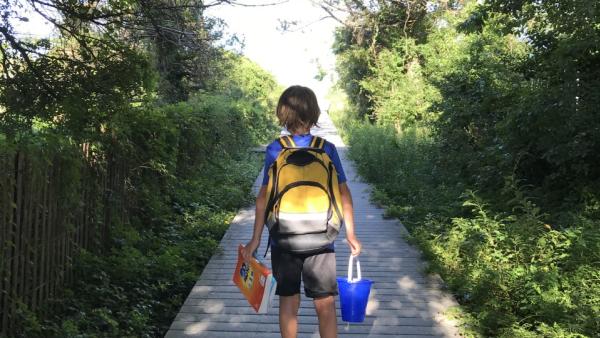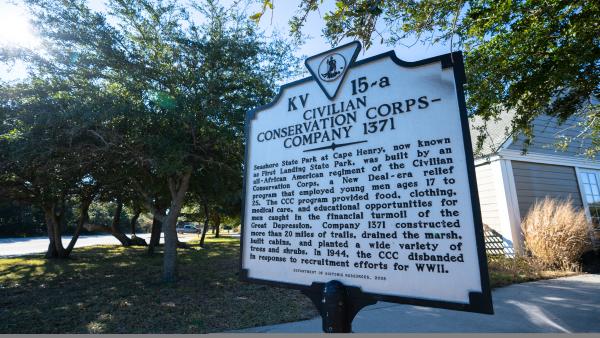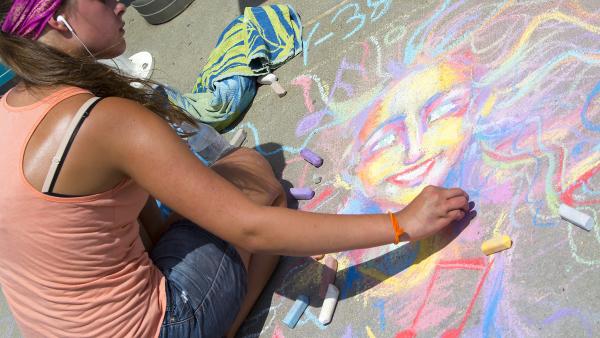Virginia Beach
Distance Learning Guide
From the profusion of waterways running through our coastal city and the biodiversity of the mighty Chesapeake Bay and Atlantic Ocean, to a unique history that predates the founding of our country, there is no shortage of educational opportunities and unforgettable fun to be had in Virginia Beach. Students can explore one of the most environmentally smart, energy efficient building in the world at the Chesapeake Bay Foundation’s Brock Environmental Center, climb back in time at the first lighthouse built in the newly-formed United States, and much, much more. With our arts scene, museums, rich history and unique coastal environment, this helpful guide for those who are distance learning has everything you need to help you find the perfect combination of education and vacation for your family in Virginia Beach.
Distance Learning Resources
-
Surf, Sand & Study Deals
We've partnered with many of our hotels and... Let's Go
-
African American History Tour
A Self-Guided Tour to African American History in... Let's Go
-
VB Coloring Book
From the beauty of a Virginia Beach Sunrise to the... Let's Go
Educational Experiences
Jump To
Virginia Museum of Contemporary Art (MOCA)
2200 Parks Avenue, Virginia Beach
757-425-0000
www.virginiaMOCA.org
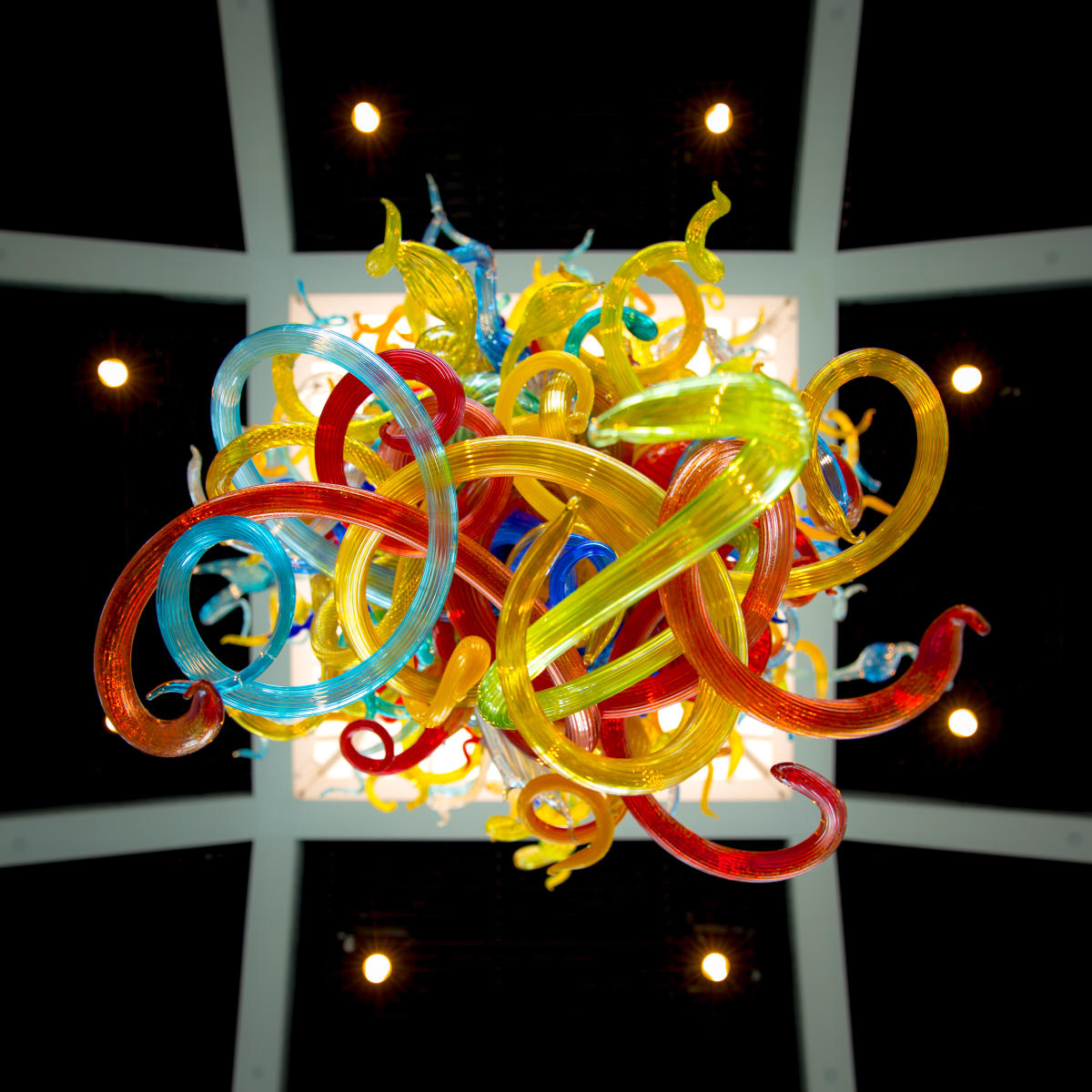
Virginia’s only museum devoted to contemporary art, “MOCA”’s regularly changing exhibitions feature painting, photography, sculpture, glass, and mixed media from local and internationally acclaimed artists. The museum’s mission to foster awareness and understanding of the significant art of our time—and help young and old create their own—is embedded in every exhibit they host through gallery guides, audio tours, studio art classes and other interactive elements. And with more than 30-40 exhibits per year, it’s a place you can return again and again for a new experience.
Inspiration from fellow students and teachers can be found in the museum’s Fleming Gallery. Changing monthly exhibits feature art in many mediums created by Hampton Roads students, Virginia Beach art teachers, and other community groups.
For homeschool groups, the museum’s manager of school & educator programs can arrange a one hour guided inquiry based tour of the current exhibit, or two-hour tour that includes an art making activity inspired by it.
Admission
$7.70 adults, $5.50 students/seniors (children 5 & up considered students, 4 & under are free.) Free audio tour included with admission. Note: Closed Mondays. Check the website before you go. The museum closes twice per year for 4-5 weeks to change exhibits.
Teachable Moment
The website’s teacher resource section has numerous printable posters with provocative prompts that foster critical thinking about art and the world around us: http://www.virginiamoca.org/printable-posters.
An example from the poster on Mikalene Thomas: Do you pick out your own clothes? Do your parents? Are most of them hand-me-downs? If you could wear whatever you wanted to, what would it be? Draw or write about your outfit.
Virginia Aquarium & Marine Science Center
717 General Booth Blvd., Virginia Beach
757-385-FISH
www.VirginiaAquarium.com
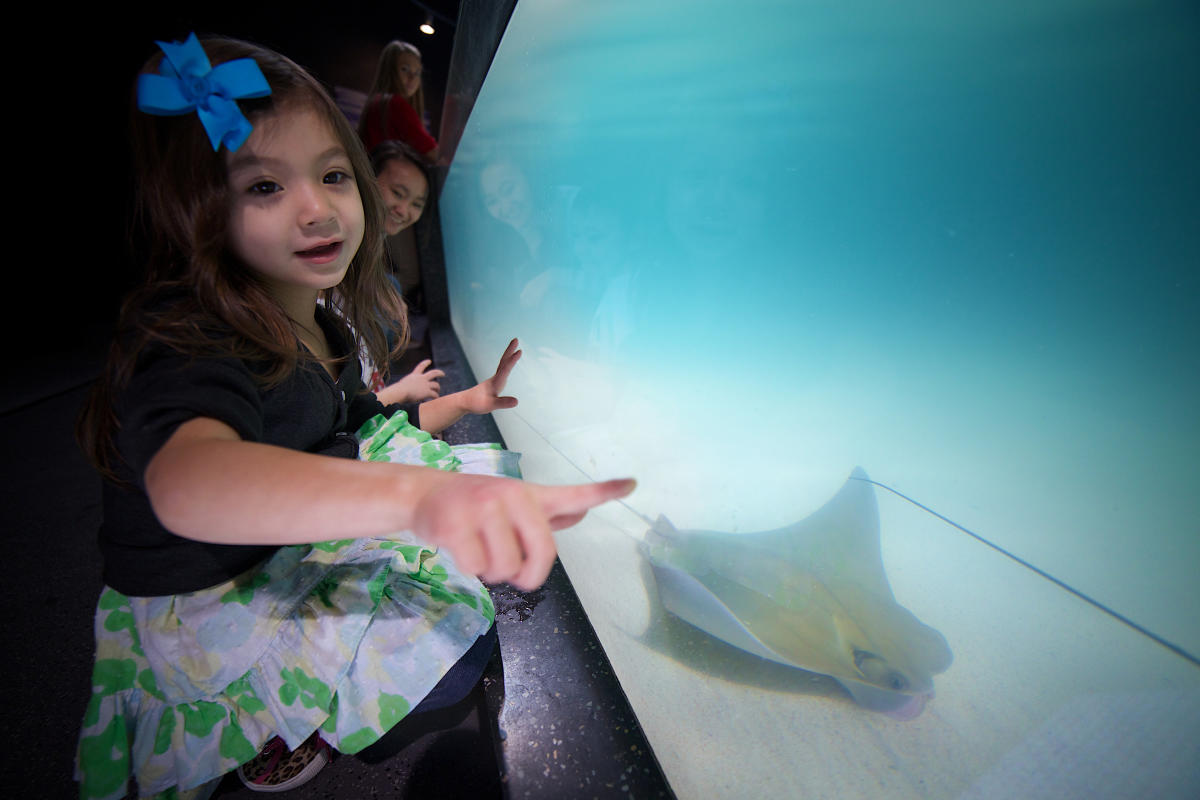
Enhance your science curriculum with a visit to see more than 10,000 animals—including sea turtles, harbor seals, and sharks—at Virginia Aquarium. What sets the aquarium apart are the hands-on opportunities to learn about everything from deep sea exploration to animal habitats. Choose from a self-guided tour, an educational 3D film, or boat trip, as well as separately booked onsite programs for groups of ten or more similarly aged students. These 45-75 minute experiences include Marine Mysteries, an opportunity to explore real animal bio-facts in ten stations, and a Wandering through Wetlands program where students can get muddy exploring a salt marsh to learn the importance of wetlands to Virginia’s watershed health.
The aquarium’s in-depth Field Trip Guide helps make the most of individual self-guided tours with pre and post-trip activity suggestions, and Virginia SOL based "Find and Explore" questions, which range from “Understanding animals and their habitats,” to “Understanding ocean environments,” plus ecosystems and adaptations, and more.
Admission
Discounted rate is $12 per homeschool student age 2-18, $18 adults. Proof of homeschooling required (copy of your notice of intent or HEAV membership card). $5 per person for current movies. Onsite education program for groups of ten or more, $2 per person.
Teachable Moment
Rent a ‘Suitcase Science’ kit to take home for two weeks. These themed kits include lesson plans, books, DVDs, posters, and animal bio-facts and models, each tailored to kids in grades K-12. Choices include the popular Animal Adaptations suitcase—which includes real animal bio-facts such as a horseshoe crab molt and seal fur, and food-chain activity—Sea Turtle Science, Climate Science, and more. $30 per kit if you pick it up and drop it off, shipping also available.
Virginia Beach History Museums
Visit www.museumsvb.org for specific info

Discover Virginia Beach’s role in our country’s heritage at the four historic sites that make up the Virginia Beach History Museums, each with its own guides who engage students. Learn about one of Virginia’s first colonists and see a dramatic turned staircase at the oldest home, Thoroughgood House, circa 1719. The house (reopening May 2018) has a new education center that brings the early 1700s colonial time period to life with hands-on activities and school programs that include a mock archaeological excavation.
Also in Virginia Beach, the Lynnhaven House, circa 1725, is an example of early Virginia vernacular architecture with several artistic design elements. Lynnhaven tours highlight the roles of the original builder and homeowners, their five sons, and several enslaved people that worked on the smaller plantation. The Lynnhaven House is projected to reopen in 2019. T
The Princess Anne County Training School and Union Kempsville High School Museum tells the story of the African American community to build a high school for black children during segregation, on through the civil rights era and integration. The exhibits include textbooks and school yearbooks from the 50s and 60s, plus oral histories from school alumni.
For those who'd like a tour from the comfort of home, you can take a virtual tour of two historic homes. You can join the 3D 'walking tour' of the Francis Land House, which can be enjoyed despite the Francis Land House currently being closed for renovations, and view the furnishings incorporated to interpret the period that Francis Land VI and his wives and daughters were in residence, circa 1805-1819.
You can also explore the beautiful Thoroughgood House, which is accompanied by information relating to each stop on your journey.
Admission
$8 for adults, $5 for students per house. Group tours: $3 per attendee. Open Thursdays - Saturdays 10 a.m. to 4 p.m.
Teachable Moment
Borrow a traveling trunk complete with reproduction artifacts, lesson plans, and activities. Trunk themes include, “Growing Up Colonial,” and “Life in Early Virginia and From Slavery to Abolition (1793-1860),” a traveling trunk aimed at fostering discussions for middle and high school age students on the issues that plagued a divided nation.
Virginia Military Aviation Museum
1341 Princess Anne Rd, Virginia Beach
757-721-7767
http://militaryaviationmuseum.org

Visit the world’s largest collection of military aircraft still in flying condition from the two World Wars at the Virginia Military Aviation Museum. Housed in multiple hangers—including one dedicated to Army and another Navy—the collection shows the rapid advancements in aviation that occurred from the time the Wright Brothers first got off the ground in 1903 to the Royal Air Force’s famous Spitfire and Hurricane fighters that defended the skies of Britain during the Second World War.
The main museum is open daily from 9-5, with tours to the WWI, Cottbus German Hangar and Fighter Factory offered at 10:30, 12:00, 1:30 and 3:00. The tours are led by volunteer docents, a group made up of former military personnel and retired educators who share a passion for the stories behind the aircraft, including one about the all-female soviet squadron who flew throughout World War II and were referred to as The Night Witches by the Germans. Support your science studies with questions about gravity, kinetic energy, and the benefits and challenges of various wing formations.
Don’t miss the 1939 German Luftwaffe hangar (Cottbus) and an English control tower, both rebuilt on the museum grounds using materials from the buildings’ original sites in Europe. The Cottbus hangar houses Nazi “butcher bird” planes. The Goxhill Control Tower was an actual building on America’s first World War II airfield in Lincolnshire, England. Pieces of that tower were flown here and reassembled at the museum. Touring it is like entering a time capsule of wartime Britain, complete with rotary phones, typewriters, narrow staircases and a government map armoire.
The museum’s entrance is home to “Jerrassic park,” a collection of dinosaur sculptures. Print out the scavenger hunt map on the museum’s website before you go.
Admission
$15 adults, $7.50 for children aged 6 to 17. Groups of 10 or more: $13 adults, $6 per child. Discounts available for retired and active military personnel.
Teachable Moment
Make a list of planes, selecting one from at least four different countries, and note which country’s air force it flew for and why it was significant.
First Landing State Park
2500 Shore Dr, Virginia Beach
757-412-2300
http://www.first-landing-state-park.org
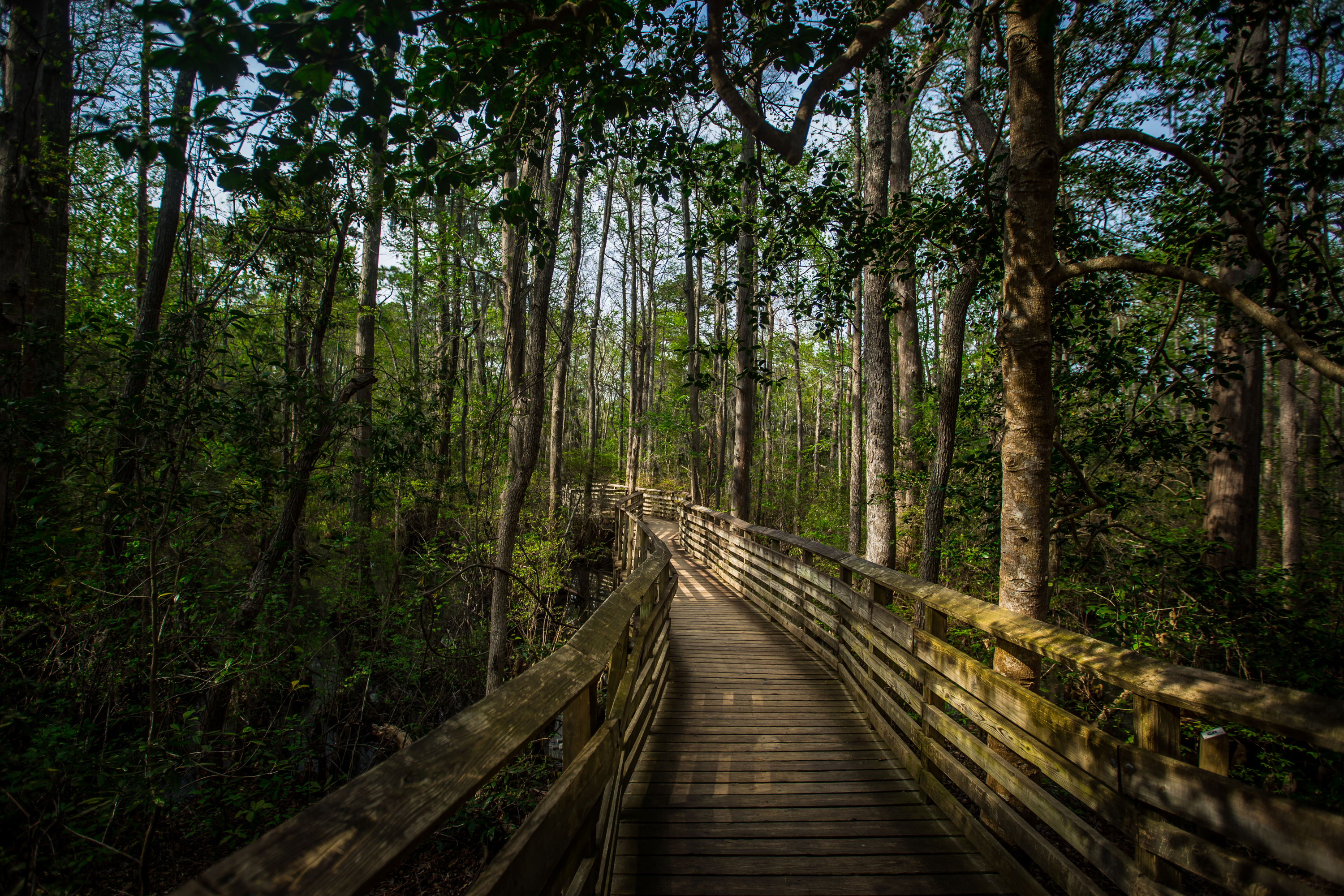
Mix a history lesson with outdoor education at First Landing State Park. This 2,888-acre park gets its name from the landing of the Virginia Company on Cape Henry—the group of settlers that first came ashore there eventually moved west and founded Jamestown. Upon touching the shore of the New World on April 26, 1607 (13 years before the Pilgrims landed at Plymouth Rock) the first permanent English settlers from the London Company set up a cross on the newly named Cape Henry shore in gratitude to God and to affirm England's claim to the site. These settlers later traveled up the James River to Jamestown. The present-day granite cross was erected in 1935 and is a national landmark.
The park has over 18 miles of hiking trails that run through saltwater marshes, maritime forests and bald cypress swamps. Trails vary in length and difficulty and include a 1.5 mile stroll along the Chesapeake Bay Beach. For explorations on water, rent a canoe or kayak at the park concession near the Narrows boat ramp, located at the 64th Street entrance. For a sleepover in the park, rent one of the 20 two-bedroom cabins, or book a campsite (800-933-PARK for reservations).
First Landing offers self-guided and guided programs that cover crabbing, junior rangers, beach walks, nature hikes and structured environmental education programs. The park’s visitor center includes an interactive museum-like space that focuses on the Native Americans who lived on the Virginia coastline and what the land looked like when European settlers arrived. The trail center exhibit shows the history of the park itself as well as examples of the plant and animal life that can be found there. Numerous special events, workshops and interpretive programs are held throughout the year, details at: http://www.dcr.virginia.gov/state-parks/park-events.
Admission
Use of the park itself is free. Parking: $4 per vehicle weekdays; $5 weekend days. For overnight campers, cabins range in price from $94 to $139 per night. Campsites run between $24-32.
Teachable Moment
First Landing participates in Virginia State Parks’ “Your Backyard Classrooms,” a 40-activity curriculum guide used by K- 12 teachers and home-school coordinators. Print “Telling Tides” and investigate tidal patterns using a tide chart, and compare the effects of moon phases on tidal height.
Virginia Beach Surf & Rescue Museum
2401 Atlantic Ave, Virginia Beach
757-422-1587
https://vbsurfrescuemuseum.org/

Reopened in May 2018 after an extensive renovation, this circa 1903 United States Life Saving station is a white clapboard museum devoted to the tales of rescue missions and the forces that created a region. Long-standing museum favorites include exhibits on super storms that have shaped Virginia Beach, the life saving station’s history and the men who served there, plus intriguing stories of shipwrecks.
Thanks to the renovation, more than half of the exhibits are new. The lower gallery showcases local surfing legends and a look at the art and science of surfboard design and how it has evolved. In addition, you can see how Virginia Beach transformed from a rural outpost to a popular resort town in the early twentieth century. Kids can try on vintage service uniforms and beach attire from earlier eras in the new costume corner.
Contact the museum to book a group tour tailored to your students’ ages and interests. Themes could include surf and rescue, a scavenger hunt, or shipwrecks and ghost lore. Homeschool days on November 9 and 10 will be surf-themed and incorporate several academic disciplines. A rescue-themed spring 2019 date is in the works.
Admission
Adults, $6 per person; kids 18 and under admitted free, with the exception of special programs. Group tours run $5-10 per person. See website for coupons.
Teachable Moment
Write a short story imagining what it was like to be a rescue service member and respond to a shipwreck. Or, study the various surfboard designs and sketch your own, listing what aspects of your design will contribute to how the board would handle waves.
Back Bay Wildlife Refuge & False Cape State Park
Back Bay Wildlife Refuge, 4005 Sandpiper Rd, Virginia Beach
757-301-7329
https://www.fws.gov/refuge/Back_Bay/about.html
False Cape State Park, 4001 Sandpiper Rd, Virginia Beach
757-426-7128
http://www.dcr.virginia.gov/state-parks/false-cape#general_information
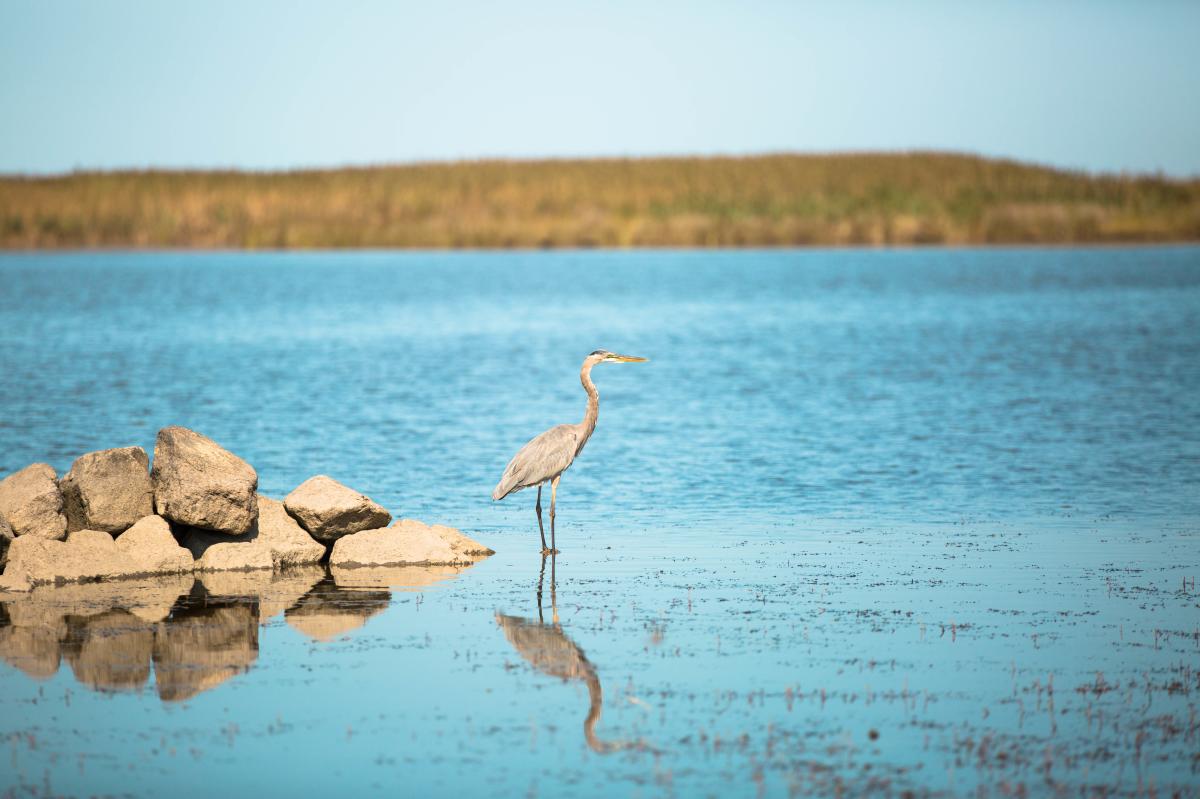
Established in 1938 and managed by US Fish and Wildlife, Back Bay Wildlife Refuge is a more than 9,250-acre feeding and resting habitat for migratory birds and a critical segment in the Atlantic Flyway that includes beach, dunes, woodlands, and emergent freshwater marshes. Thousands of tundra swans, snow and Canada geese and a large variety of ducks visit during fall and winter migration. The refuge is also home to threatened and endangered species such as the loggerhead sea turtle and piping plovers. Stop by the Visitor Contact Station for information on trails, interpretive programming and educational opportunities. Open Tuesday - Sunday Memorial Day through Labor Day; Tuesday - Saturday Labor Day through Memorial Day.
Nestled between Back Bay Wildlife Refuge and the Atlantic Ocean, False Cape State Park is one of the last remaining undeveloped areas along the Atlantic coast. Explore the Barbour Hill self-guided interpretive trail, six-miles of pristine Atlantic Ocean beach, or book a guided kayak trip. The sunrise and moonlight tours are especially beautiful. Introduction to Archery, and Art in the Park outings focus on painting and photography also available. Bring plenty of water, sunscreen and insect repellent.
Admission
False Cape is only accessible by foot, bicycle, beach transport, tram or boat. Tram transportation is available April 1 through October 31 through Back Bay National Wildlife Refuge. Between November 1 and March 31, access to the park is restricted to hiking or biking along the beach, or by the park’s beach transporter, the Terra-Gator which looks like a cross between a tractor and school bus. Call 800-933-7275 for reservations. The Gator is $8 per adult/$6 children; $100 for school field trips, minimum of 10 riders, maximum 36. Operates weekends only from November 1 through March 31.
Teachable Moment
Visit the “For Educators” section of Back Bay’s website or details on summer educator workshops and lesson plans. Topics include exploring marshes, pond habitats, and an opportunity to simulate the beach monitoring done by refuge biologists during Sea Turtle nesting season.


